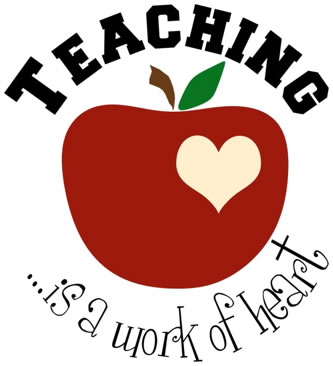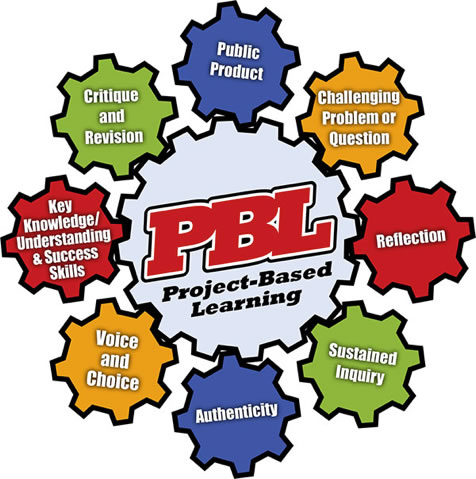
August 2016
Curriculum, Instruction & Assessment:
Regional Sessions
The annual catalog of regional sessions available through OCM BOCES for 2016-17 is mostly complete and you can view on My Learning Plan. A few additional sessions will be added in the near future: Working with Students from Poverty, several additional math sessions, and Adaptive Schools.
OCM BOCES component districts register for regional sessions at no additional cost.
Here are selected opportunities for early fall!
Leadership & Collaboratives

New this year! While there have been active leadership networks group in previous years, for the coming year there will be two distinct groups. Collaboratives will focus on the practice or implementation of curriculum, instruction and assessment. The other group is the leadership group which will meet less frequently with the focus on sharing, planning and collaborating. The intention is to build capacity of systems. Further information on leadership groups will be in September newsletter.
CI&A will facilitate collaborative groups (some were previously called networks). The intention of these groups is to communicate information, provide a forum for sharing and collaboration across districts all towards building capacity and working towards continuous improvement. Audience is teachers, teacher leaders, administrators. The focus is on practice of teaching and learning.
Social Studies Collaborative
September 28.
These facilitated sessions are for K-12 teachers and administrators who participated in the Summer 2015 and Summer 2016 Social Studies Curriculum Work to continue the process of curriculum mapping, unit design and inquiry writing. Participants will collaborate to share information, ideas and instructional practices on the teaching and learning of social studies content and skills. Participants may sign up for a single session or for multiple sessions, as desired. Participants will gain a deeper understanding of the Social Studies Framework as well as the Toolkit Inquiries and how they apply to their curriculum. Participants will also receive resources and support for continuing development of instructional units and lessons.
Instructional Coaches Collaborative
October 6.
This is an opportunity for Instructional Coaches to come together to learn, reflect, share successes, collaborate and plan within a supportive community. It is a continuation of last year's Instructional Coaches Network, but new participants are always welcome! We will focus on developing and refining the knowledge, skills and mindsets necessary to have successful 1:1 coaching conversations and to lead effective teams. This collaborative opportunity offers a variety of easily replicated facilitation strategies, as well as the time to practice and apply them. We hope you'll join us!
K-6 Literacy Collaborative
October 13
This Literacy Collaborative is an opportunity for K-6 teachers to come together and explore instructional practices and strategies for improving literacy outcomes for all students. Participants will be able to collaborate with and learn from each other, share ideas and best practices and plan for the application of new learning in a supportive environment. If you are a K-6 teacher looking to continuously improve literacy instruction for your students, please join us!
7-12 Literacy Collaborative
October 25
Are you interested in engaging your students in deeper learning of your content area through literacy-based instruction? If you answered "yes" to this question, please join the 7-12 Literacy Collaborative. Participants will have the opportunity to explore, apply, and share literacy-based instructional strategies that work in any content area.

Learning Targets: Hitting the Bullseye
September 29
Looking for a high leverage, research-based practice to improve student learning? Evidence shows that learning increases when students understand exactly what they're supposed to learn and what their work will look like when they learn it. This half day session will focus on designing, implementing and assessing learning targets so that students have clear goals and a clear vision of what success looks like. Let's take the mystery out of learning and help students hit the bullseye!
Through this session, participants will be able to:
- Describe the role of learning targets in a standards-based classroom
- Identify and design effective learning targets
- Gather strategies to promote student self-assessment and engagement
Please note: the room and facilitators will also be available after the workshop, from 12:00-3:00, if participants want work time, planning or support to apply the best practices of learning targets to an upcoming unit or lesson. This is something new added to provide additional time for teams or individuals to have dedicated time to plan for implementation of new knowledge and skills offered from the morning.
The Teacher's Literacy Toolbox Series: Reading, Writing & Research in a Common Core Classroom
Begins October 4
This three-session series will bring the Common Core alive as we study the connections between evidence, close reading of complex texts, text-based discussions, argumentation, integrating information from multiple texts and writing from sources. The first session will focus on making complex texts accessible through the practice of Close Reading. The second session will emphasize Writing from Evidence. The third session will wrap up the series with a concentration on Inquiry and Research. Participants will explore the knowledge and skills necessary in order to navigate the "diverse, information-rich environment of the 21st century" (CCLS, Appendix A)
Creating a Culture of Critical Thinking
October 13
Creating a culture of critical thinking involves identifying the kinds of thinking required for deeper learning and thinking routines that best support student readiness and the content area. This workshop will demystify the concept of critical thinking and explore a variety of thinking routines that will assist in creating a culture of critical thinking regardless of grade level and content area.
Strategies to Engage the Minds of the Learner
October 18
How do we move students from compliance to engagement? This workshop provides an opportunity for participants to explore how we might use strategies effectively when planning lessons and units. Participants will fill their toolbox with strategies designed to support a student-centered classroom with an emphasis on interacting with content to support deep learning. Throughout the workshop, participants are invited to share and apply their learning as they frame a lesson aimed to challenge the strategic learner.
Formative Assessment Strategies: Check-Ups for Learning
October 20
Looking for a high leverage, research-based practice to improve student learning? Evidence shows that learning increases when students have a clear understanding of where they are in relation to the learning goals and specific steps they can take to close the gap. This half day session will focus on designing, implementing and using formative assessment strategies to make instructional decisions and provide students with meaningful feedback and opportunities for self-reflection. Don't wait until your next test to assess student learning. Let's make learning "check-ups" part of our daily practice!
Please note: the room and facilitators will also be available after the workshop, from 12:00-3:00, if participants want work time, planning or support to apply the best practices of learning targets to an upcoming unit or lesson. This is something new added to provide additional time for teams or individuals to have dedicated time to plan for implementation of new knowledge and skills offered from the morning.
Good Practices in Geography
October 20
Geographic Reasoning is one of six Social Studies Practices that are emphasized in the NYS Social Studies Framework, but Geographic Reasoning involves more than reading a map. In this interactive workshop, participants will learn how to be more successful in connecting geography to their curriculum in middle school social studies, Global History and Geography, and American History. Lessons will be presented that are appropriate for middle and high school students, and teachers will have time to work with colleagues to come up with their own lesson ideas. Materials and resources will be provided including Clickable PDF maps, GeoHistoGrams, and other tools.
Standards Based Planning for the 21 Century: Instruction for All
November 9
An important goal of the workshop is for participants to become comfortable with and build skills at using the standards-based planning process.
- What makes planning for teaching and learning in a standards-based environment different from planning for teaching and learning in a non-standards based environment? Why are these differences significant?
- How can we Frame the Learning so that the what, why, and how of the learning are clear to learners?
- What are the ways that we can engage our learners in active, meaningful learning?
- How can we structure learning experiences so that instruction, learning, and assessment are integrated?
- How do we ensure balance and appropriateness in the design, selection, and use of a wide range of classroom assessment tools?
This series infuses the work of reform in NYS with solid proven instructional and assessment practices. It includes the elements from ITIP.
Project Based Learning

PBL 101 for Elementary Educators
Begins October 5
PBL 101 is a foundational four-day workshop inspired by the work of the Buck Institute for Education, New Tech Network, Edutopia and Expeditionary Learning. It provides attendees with the skills and knowledge needed to design, assess and manage a rigorous, relevant, and standards-based project. The workshop is a balanced blend of direct instruction, video analysis, hands-on work time, resource sharing, and peer collaboration and feedback.
PBL 101 for Secondary Educators
Begins November 2
PBL 101 is a foundational four-day workshop inspired by the work of the Buck Institute for Education, New Tech Network, Edutopia and Expeditionary Learning. It provides attendees with the skills and knowledge needed to design, assess and manage a rigorous, relevant, and standards-based project. The workshop is a balanced blend of direct instruction, video analysis, hands-on work time, resource sharing, and peer collaboration and feedback.
Problem Based Learning for Math Educators
October 18
This workshop will guide middle school and high school math teachers through a learning process in which they will gain an understanding of the key differences between Project Based Learning (PBL) and Problem Based Learning (PrBL). We will analyze different ways to link your curriculum and technology with a PrBL approach to create a rigorous and engaging learning environment for your students. Participants will also utilize workshop time to start planning their first PrBL experience for their students.
Problem Based Learning for Science Educators
October 20
This workshop will guide middle school and high school science teachers through a learning process in which they will gain an understanding of the key differences between Project Based Learning (PBL) and Problem Based Learning (PrBL). We will analyze different ways to link your curriculum and technology with a PrBL approach to create a rigorous and engaging learning environment for your students. Participants will also utilize workshop time to start planning their first PrBL experience for their students. This session is for middle school and high school science educators and administrators who want to learn more about Problem Based Learning.
Updating Your PBL to Gold Standard
October 19
During the summer of 2015, a new ASCD book was published called Setting the Standard for Project Based Learning (Larmer, Mergendoller, Boss, 2015). At this time the Buck Institute for Education shifted from the "PBL 8 Essentials" to the "Gold Standard Design Elements". This training is designed for teachers trained in PBL 101 prior to the shift to Gold Standard PBL. Teachers will learn about the Essential Project Design Elements for Gold Standard PBL and will have time to redesign projects they currently have to Gold Standard and inform new projects for the future.
Culture & Climate
The Responsive Classroom® Course: Fall 2016 Institute
Begins October 3
Become a more effective teacher by learning research-based strategies that lead to:
- Engaging academic instruction
- Better classroom management
- Positive learning communities
- Developmentally Appropriate Instruction and Discipline
This interactive, highly practical 28-hour course is our new and improved entry-level training. It gives classroom and special area teachers everything needed to start using core Responsive Classroom teaching practices. This course is Level 1 Learn specific ways to build classroom community and establish and sustain an optimal learning environment.

In case you missed some blogs by our team

Patrick Shaw shares the importance of planning out the first weeks of school and highlights a revised resource in Use the summer to plan your first six weeks
Through Curriculum, Instruction and Assessment component districts have the opportunity to send participants to regional offerings at no additional fees. Other districts may also attend and fees apply. Regional offerings are developed based on district input and expressed interests. Additional focus areas or alternative dates may be arranged especially for a district using included days or at regular daily rates. CI&A facilitates support for instruction through coaching, regional sessions and direct in-district work.
- In-District Days: Districts may contract for specialized work or projects by contacting Lynn Radicello at Lradicel@ocmboces.org
- Coaching: OCM BOCES offers direct instructional coaching in the areas of literacy, Project Based Learning, math and general instructional coaching. Districts may arrange for coaching by contacting Lynn Radicello at lradicel@ocmboces.org
- Regional Sessions: Registration is usually through My Learning Plan. Most sessions are posted by summer for the coming school year. Additional sessions may be added according to emerging requests. Offerings are found on MLP, are highlighted in Instuctional Supports's Weekly Dispatch enews and are described in the monthly PD enews.
Follow Us Online |
||||||
| OCM BOCES Instructional Support (IS) offers specialized E-Newsletters centered around our different departments. To view the choices or to sign up, visit our E-News Sign-up page. You may unsubscribe at any time. | Visit our Website |
|||||